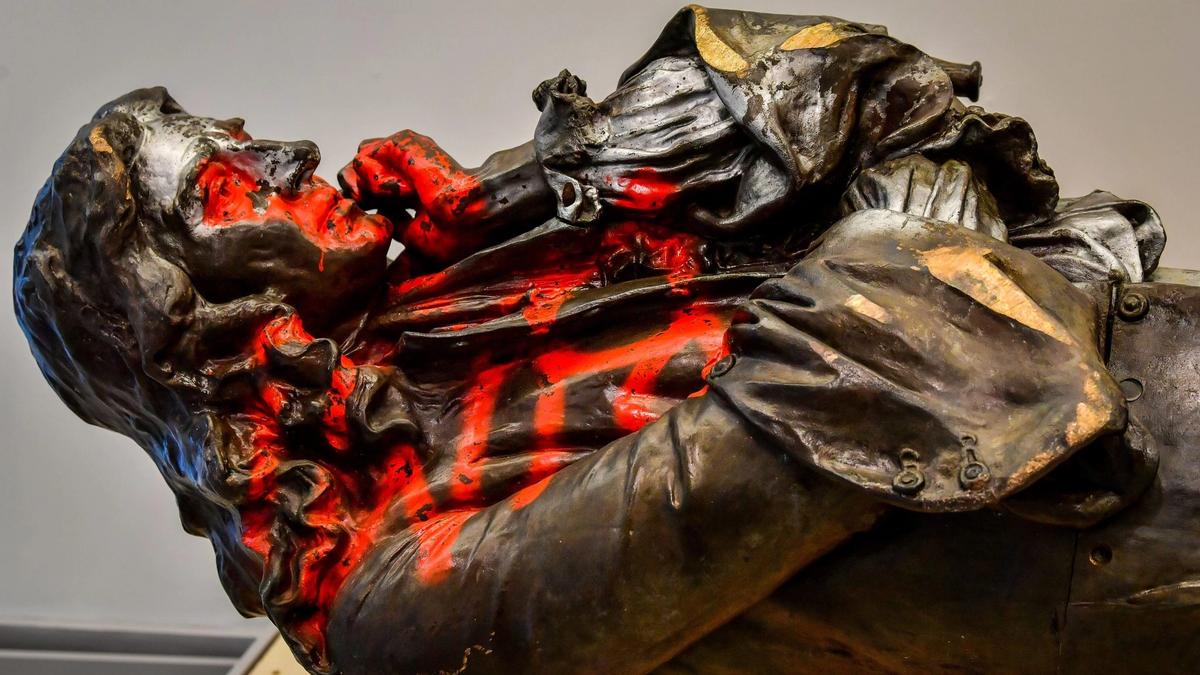The trial of the four people accused of helping to pull down the memorial to the slave trader Edward Colston in Bristol, UK, and dump the contentious statue in the harbour last summer has begun, reigniting the debate about the value of colonial-era contested monuments and statues.
Rhian Graham, 30, is accused alongside Milo Ponsford, Sage Willoughby, and “others unknown” of helping to tie ropes around the statue’s neck that were used to pull it to the ground. Jake Skuse is accused of rolling the statue to Bristol Harbour. The four have pleaded not guilty to the charge of criminal damage; the trial at Bristol Crown Court is expected to last around two weeks.
The statue was toppled in June 2020 following the murder of George Floyd by the ex-Minneapolis police officer Derek Chauvin the previous May. The 18-foot bronze statue long divided opinion in Bristol. Colston was a member of the Royal African Company, which dominated the West African slave trade, transporting around 80,000 men women and children from Africa to the Americas. The slaver, who also cultivated a reputation as a philanthropist, died in 1721 though the statue by John Cassidy was erected in 1895.
Graham told police that she had damaged the statue “but whether it is criminal or not I think is up for debate, because of all the context around the statue, and the fact that people have campaigned to take it down and it is just an abhorrent offence to a lot of the population of Bristol”.
Crucially, Jon Finch, head of culture and creative industries at Bristol City Council, told the jury the Colston statue was approved by the council in the late 19th century though Tom Wainwright, counsel for Ponsford, said the statue was "gifted" to the people of the city. Blinne Ní Ghrálaigh, the solicitor acting for Graham, said to Finch: “The statue clearly caused significant concerns in certain parts of the community. And despite recognising that, there were no moves by the council to remove the statue were there?” Finch replied: “No, not that I’m aware of.”
According to the Daily Mail, Finch was asked if the fact other memorials and venues around the city have been stripped of Colston's name proved the statue should have been removed earlier. Finch replied: “I can't comment on that.”
The battered and graffitied statue has since gone on show at the M Shed Museum in the city. Finch said that museums should be “able to respond and engage with social issues and current concerns”, adding that the display prompted conversation and “most importantly, engagement” with the people of Bristol.
Street artist Banksy has meanwhile been vocal in his support for the Colston Four, announcing that proceeds from T-shirts emblazoned with his designs sold at five independent stores in Bristol over the weekend. The artist states that "all proceeds [will go] to the defendants so they can go for a pint", which presumably means their legal costs will be covered.


